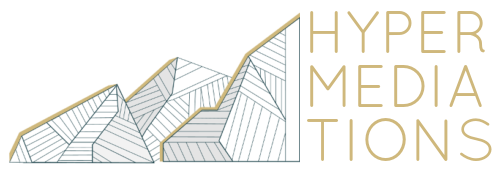What are some aspects of your scholarly background that you would like to share?
For twenty years, I have focused on global communication and social/political change, notably on the intersection of media, geopolitics, culture, and identity. Specifically, this means that I am interested in how forms of culture, particularly popular culture, are politicized, and how the movement of political energy within popular culture helps us understand both culture and politics better. In this context I have studied how individuals and groups use reality television, children’s television, music video, and digital memes to wage political battles. I study these issues from a comparative and transnational perspective, often but not always using the Middle East as a site of research and analytical prism.
Can you tell us about your body of work?
My early work has focused on the social and cultural dimensions of globalization. I was interested in how local social traditions and cultural forms accommodate global forces, and how people living in the Global South experience globalization. That earlier work was methodologically ethnographic and theoretically imbricated in the multidisciplinary but sociologically-dominated literature on global culture. My books Hybridity, or the Cultural Logic of Globalization (Temple University Press, 2005) and Global Media Studies: Ethnographic Perspectives (Routledge, 2003, with Patrick Murphy) stemmed from that line of research. Then my research made a turn to focus more explicitly on media and political struggles, using the Middle East as a prism on the intersection of politics, commerce, sexuality, and religion. My work in that area is explicitly transnational, focuses on “entertainment” (as opposed to news media) and uses primary sources. Methodologically, though I still did extensive fieldwork, I became more interested in various forms of discourse analysis, which I found to be a powerful tool to both disentangle the multiple dynamics and components of political struggles but also to understand them in their complex interactions. My book Reality Television and Arab Politics: Contention in Public Life (Cambridge University Press, 2010) is exemplary of this stream of research, so are multiple edited books and journal special issues.
More recently, the political became more central to my research, and I have focused on the human body as the indispensable medium of communication and political contention. This has led me to broaden the literature I draw on to include, for example political theory, puppetry, various theories of violence, and digital culture, and to deepen my grasp of schools of thought—theories like phenomenology and biopolitics, methodologies like semiotics and iconography—that have guided my work, however indirectly, for a long time. My book The Naked Blogger of Cairo: Creative Insurgency in the Arab World, exemplifies this ongoing research interest. My current work on the War Machine in the digital age builds on previous research to achieve a new understanding of the nexus of violence, politics, communication, and religion through theories of affect, nomadology, and speed.
How would you describe the relationship between media and religion?
I would describe it as banal. For many—–perhaps the vast majority of——people today, religion is a vastly mediated practice, from the microphone in church to the latest app for the faithful. This mediation—or hypermediation—of the religious experience is so pervasive as to be taken -for -granted, mostly unnoticed—banal.
What are your reflections on scholarship in this media moment?
I think scholars are rising up to the task in unraveling the perils and promises of the changing media landscape but fear we will always already play catch-up because of the velocity and unpredictability of these changes.
What are the challenges and potentialities of public scholarship?
The challenges of public scholarship are many. First, of course, there is the risk of backlash against scholars who address hot- button issues—race, sexuality, Islam, patriotism, etc.—critically, which in the Twitter age has become virulent. Second, there is vast variation in institutional assessment and reward of public scholarship, and precarious, emerging and non-tenured scholars are at particular risk of being sanctioned when their scholarship engages a public rather than a specialist scholarly audience. Third, and I think most pernicious, is the risk that public scholarship produces what Pierre Bourdieu has called “fast thinkers”—people whose intellectual inquiry is shaped more by short-term media interest rather than by enduring and important issues.
The promises of public scholarship, when done well, include an injection of evidence-based and otherwise (mostly) sane arguments on pressing issues in the public sphere, and influence and recognition for scholars who spend years, even decades, developing expertise. Perhaps most importantly, public scholarship can be understood as a two-way process of accountability between scholars and their public.
What are your experiences with public scholarship?
I have done a lot of media interviews over the years: radio, television, and daily newspapers. I particularly enjoy working with public radio. I have also written variety of foundation and policy reports, and a few op-eds. The first time I received hate mail was when I was interviewed on the Diane Rehm Show on NPR to discuss the launch of Al-Jazeera English in 2006. More recently, a piece I published by The Monkey Cage on the Washington Post’s digital edition caused a commotion. I sought to tease out the implications of Saudi domestic policies for the pan-Arab media sphere. Though rather academic, the piece struck a raw nerve in some circles.
What is your current project with public scholarship? What are your goals?
I am in the latter stages of a book project on “Islamic State.” Funded by the Carnegie Corporation of New York, the book conceptualizes IS as a war machine and grapples with the implications of that notion for scholars of media and violence, for the public sphere, and for policy-makers. My goal is to use a series of primary texts to produce a lucid account of a much-hyped and not fully understood phenomenon of public import.
Interviewed by Susanne Stadlbauer

